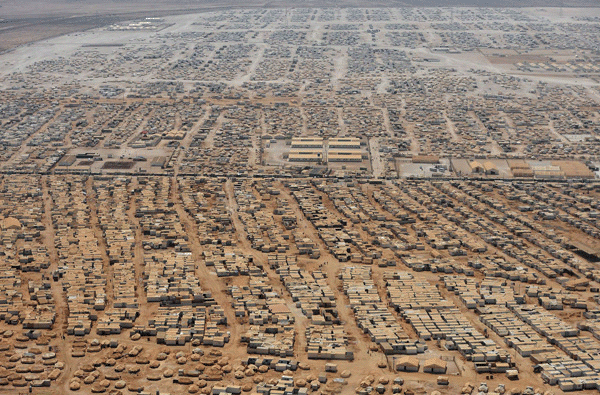U.S.-Led Coalition Bombs Islamic State in Syria
September 23, 2014
Military forces from the United States and five Arab countries widened the war on the Islamic State (of Iraq and Syria) (ISIS) by launching overnight the first air attacks on the jihadist group in Syria. American military officials said 14 strikes had destroyed or damaged ISIS training compounds, command and control facilities, vehicles, and storage sites in four Syrian provinces. Aircraft from Bahrain, Jordan, and Saudi Arabia participated in the attacks, while Qatar and the United Arab Emirates assisted in the operation. United States General Martin Dempsey, America’s highest-ranking uniformed military officer, said the strikes were conducted to show ISIS militants they had no safe haven. “We certainly achieved that,” he told reporters. The United States has already launched more than 190 air strikes against IS extremists in Iraq and has armed Iraqi and Kurdish forces fighting IS militants on the ground.
In recent months, the ISIS has taken control over great swaths of northern and western Iraq and eastern Syria. ISIS is a Sunni Muslim group known for its severe interpretation of the Shari`ah, the legal and moral code of Islam. The group specifically targets rival Shi`ite Muslims, Christians, and anyone else it deems an “enemy of Islam.” The group has become notorious for its extreme violence, including the mass executions of civilians and the barbarous beheading of enemy soldiers and Western journalists. Foreign affairs specialists noted the significance of such countries with a Sunni majority, like Jordan and Saudi Arabia, participating in the campaign against the ISIS.

A refugee camp in Jordan is one of many housing the millions of Syrians who have fled civil war and the advance of IS forces in their country. (AP)
The Syrian air strikes are aimed at halting IS advances in the eastern part of that country. On September 19, the Syrian Observatory for Human Rights said IS extremists had seized 60 Syrian Kurdish villages near the Turkish border in a two-day campaign. The fighting sent some 130,000 Syrian Kurds fleeing into Turkey last weekend. Most of the refugees were from Kobani, a predominantly Kurdish town near the Turkish border. Syrian Kurdish forces reportedly halted the jihadists’ advance amid fierce fighting. In response to the flood of refugees, Turkey closed some border crossings with Syria. Before this latest migration, there were already more than 1 million Syrian refugees in Turkey, people displaced by the uprising against Syrian President Bashar al-Assad that began in 2011. International affairs experts noted that the Turkish government is apprehensive about allowing large numbers of Kurds to enter the country. For 30 years, Turkish forces fought Kurdish separatists in a rebellion that left 40,000 people dead. Turkey also apparently wished to prevent Kurdish refugees from returning to Syria to fight the ISIS.
Additional World Book articles:
- Kurdistan
- Umayyad caliphate
- Iraq War
- Iraq 2012 (a Back in Time article)
- Iraq 2013 (a Back in Time article)
- Syria 2013 (a Back in Time article)
- Syria: The Roots of a Rebellion (a special report)


